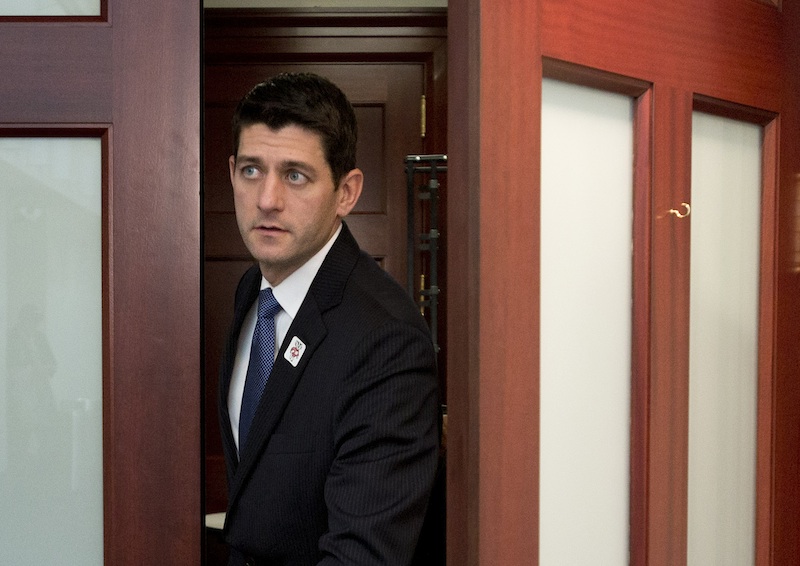For the third year in a row House Republicans coalesced around a budget blueprint that calls for converting Medicare into a subsidized private insurance market; dramatically slashing all manner of domestic spending and devolving programs for the poor like Medicaid and food stamps to the states.
The final vote was 221-207, with 10 Republicans joining unified House Democrats in opposition. One Republican and three Democrats did not vote. The development assures that the GOP’s controversial tax and spending policies will once again dominate campaign season, when midterm election campaigns begin in earnest later this year.
Though the budget lacks legislative force, it does set overall limits on domestic and defense spending, and in that regard Republicans are calling for even deeper cuts to domestic programs, in order to increase Pentagon spending.
The budget calls for replacing the current progressive tax rate structure with two brackets, dramatically lowering the top rate from 39.6 to 25 percent, and constituting a massive tax cut for high income earners. Though the budget’s overall tax reforms are intended to be revenue neutral, the document is silent on how Congress would recoup the lost revenue. Republicans have called for limiting or eliminating tax expenditures to fill that budget hole, but outside experts say the rate cuts are so large that the distributional consequences of the overall reforms would likely amount to an effective tax increase on middle income earners.
Thursday’s vote comes just as the Senate is kicking off its own budget debate, which will culminate in an unlimited amendment process called votearama.
The Senate Democratic budget calls for increasing taxes by $975 billion, via curbing tax expenditures, and cutting spending by $975 billion. The savings would be used both to turn off sequestration, to reduce the deficit, and to finance a modest, near-term jobs program.
If both budgets pass, House and Senate members could theoretically combine them into one. But the differences between the two documents are so vast that it will be extraordinarily difficult for the parties to reconcile them.






